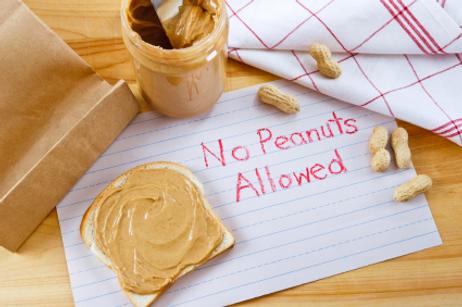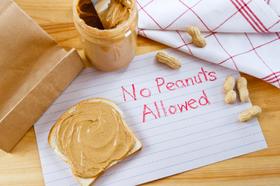According to reports, the number of children who are allergic to peanuts has doubled in just the last several years! Specifically, in a nationwide survey, over 3 percent of American homes have family members with serious peanut allergies.
As the number of allergy cases continues to rise, many public schools have gradually implemented ŌĆ£peanut bansŌĆØ in order to protect all of their students from these health threats. However, many parents and community members pose the question: are peanut-free public schools overreacting?
This video offers an overview of peanut allergies.
Peanut Allergies and Public School Students
As WebMD reveals, despite the increasing number of peanut allergies in the United States, many individuals are unaware of the serious implications of peanut exposure. Alarmingly, nearly 80 percent of children who are allergic to nuts experience symptoms such as:
- Throat tightness
- Shortness of breath
- Hives
- Difficulty breathing
Since allergic reactions to nuts can actually inhibit or halt breathing, many officials assert that public areas, especially schools, should regulate the consumption of these products. While schools are certainly hoping to protect their students who are known to be allergic, school officials are also striving to protect those who are unaware of their own allergies. In fact, only? of children have been reported to visit a doctor to investigate their own allergies.
Yet even when students are aware of their own allergies, sometimes the mere exposure to various forms of nuts can still lead to harm. As the Akron Beacon Journal reveals, a 15-year-old Ohio Public Schools student who was personally aware of her own peanut allergy had a serious allergic response when she and her boyfriend exchanged a simple kiss! Unfortunately, although the female student knew to avoid peanuts in her diet, her boyfriend had consumed a peanut butter and jelly sandwich earlier in the day. The mere peanut residue from his consumption caused the femaleŌĆÖs body to overreact with frightening allergic response symptoms.
Since there is currently no treatment for individuals coping with various nut-related allergies, Dr. Scott H. Sicherer, an expert researcher with the Jaffe Food Allergy Research Institute at Mount Sinai School of Medicine in New York, asserts that individuals must strive to avoid exposure to nuts as extensively as possible. While treatments are being explored and tested, Dr. Sicherer asserts that relief from serious allergic reactions is still years away.
This video from the Mayo Clinic offers some peanut allergy prevention strategies.
Are Public Schools Overreacting?
While many parents are frustrated by their childŌĆÖs schoolŌĆÖs food restrictions, some public school leaders argue that the safety of all of the students must be at the forefront of all policies.
In fact, according to a New York Times report, one New Jersey school, Marshall Elementary, has recently added its name to the long list of public schools banning nuts due to the principalŌĆÖs own potentially fatal reaction to nuts. In this case, the elementary principal, who was exposed to peanuts by simply sitting next to a colleague who had been consuming peanut butter, went into an urgent anaphylactic shock. When the schoolŌĆÖs principal recovered, she returned to work to immediately implement peanut-free regulations. Although the principalŌĆÖs own experience may have prompted her food-restriction response, this particular elementary school estimates that there are a great number of students with food allergies, and the nurseŌĆÖs office must keep a cache of Epi-pens to treat allergic reactions.
Parents who support peanut-free schools assert that their children have a right to attend school without fear of being harmed. Since children, as well as adults, can experience potentially life-threatening reactions when nuts are simply exposed near them, the only way to keep these students safe and healthy is to prohibit all nuts on school property.
Furthermore, as peanut-free supporters assert, the fear and trepidation that parents are forced to endure while sending their children to an environment that can be hazardous are arguably unjust. For example, one Marshall Elementary School parent, whose child experiences severe nut allergies, supports the peanut ban by declaring, ŌĆ£ŌĆśI know from personal experience what itŌĆÖs like to worry every day not being able to control what your child ingests or what he touchesŌĆ” In this day and age, schools should be peanut-free because itŌĆÖs prevalent and often a life-threatening allergy.ŌĆÖŌĆØ
Of course, parents with allergy-free kids feel frustrated by the restraints on their children. However, many public school parents still support peanut bans in order to promise all students a safer and more controlled environment.
Additionally, parents supporting peanut bans boast about the benefits of different peanut substitutes. For example, instead of consuming peanut butter, children can consume similar replacements, such as ŌĆ£Sun-Butter,ŌĆØ a sunflower seed-based spread, and soy-based products, which have their own set of nutritional benefits.
Ultimately, while public schools cannot protect their children from all potential threats and dangers, a rising number of supporters believe that the smallest step towards increased safety can be achieved with food restrictions.
Questions? Contact us on Facebook. @publicschoolreview














